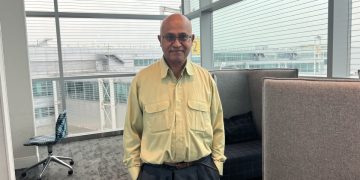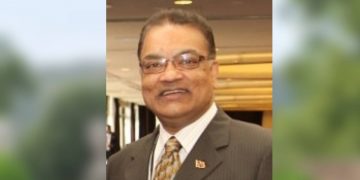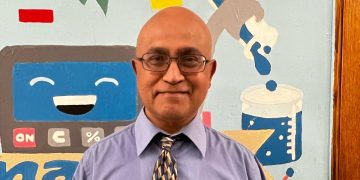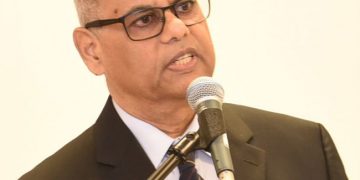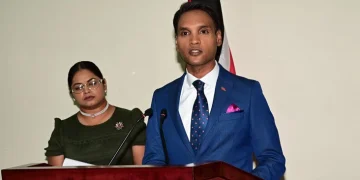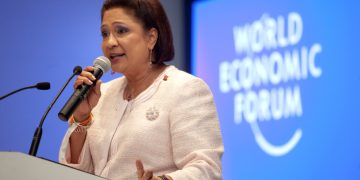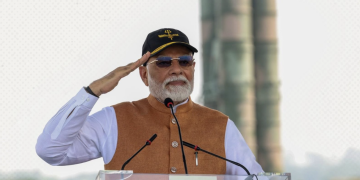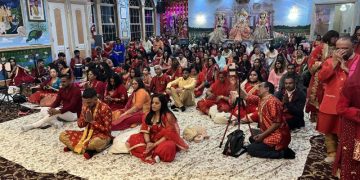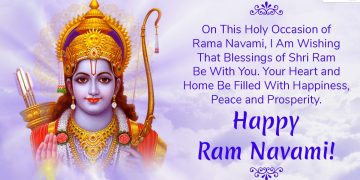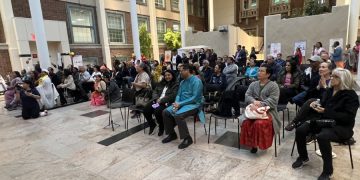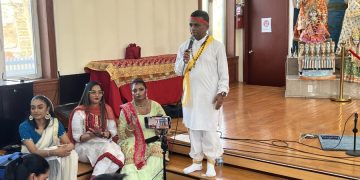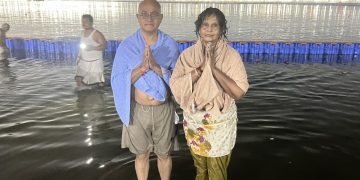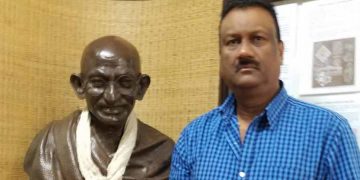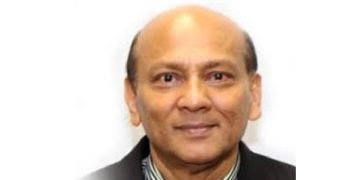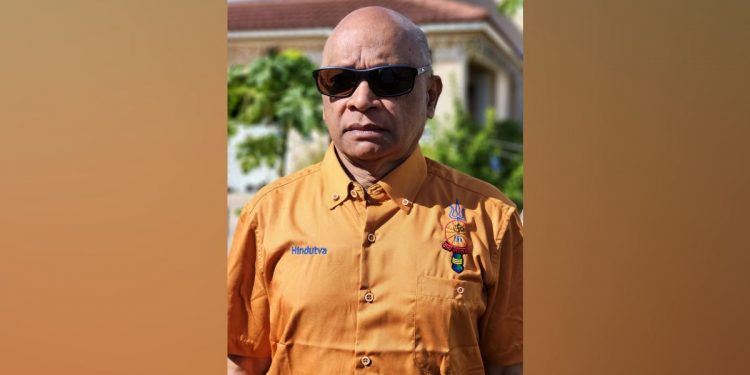From the day we stepped onto the Fatel Razack ship going to the Americas, Indian Exceptionalism began for Indo-Caribbean people and perhaps the rest of the diaspora as well. Our voyage was as unique as the pilgrims who went to what would become the United States. This is not the same as the experience our NRI brothers and sisters take during modern day immigration to the West. Many of these immigrants today arrive in the West to see well-built super nations with excellent infrastructure, economies, democracy and everybody’s guaranteed right to freedoms. However, it wasn’t that way when the ancestors of many western peoples got here. It was either wild or the Wild West and a place where piracy had actually been the first true democracy. This was the environment we had to struggle, survive and fight our way in. We, the diaspora Indians helped build the western world as it is shaped today and set the foundation for others and others like us to set foot on these soils. This indentureship was a huge price to pay to survive in the New World. The choice to go to the Americas was even more audacious. From that first step we began moving forward, but the question remains, were we always moving in the right direction?
This lecture aims to answer what happened to Indian Exceptionalism and the decline of the Indian penchant to carve a strong political ideology for themselves, thereby becoming a race of political followers instead of leaders unlike in the business and science industries. Exceptionalism, in this sense, was the idea of seeing one’s self as great and able to accomplish anything with diligence, independence, audacity and unrelenting confidence. The Indo-Caribbean culture was initially saved by Indian Exceptionalism, but was eventually lost. One of the more well-known examples of Exceptionalism is American Exceptionalism where all that is American is considered by Americans to be good and great regardless of how the world perceives them and that American born, American made, and American engineered is somehow different in an extraordinary way. The effect is, that in seeing themselves as worthy of greatness others began to see them that way as well. The importance of this philosophy is that they developed a uniquely American ideology that brought them prosperity.
What is Indian Exceptionalism? How did it begin? Why has it disappeared? How did it disappear? Isn’t it strange how Indo-Trinidadians and Indo-Caribbeans are usually perceived by others and themselves to be docile in nature, Ghandi-ish if you will? Then, how did such people manage to preserve their heritage, culture, religion and other customs in an aggressive, hostile colonial and post-colonial environment in the West where every creed and race was fighting for survival? How is it that such a quiet people, not very political in nature, with the exception of a few, managed to maintain our culture throughout the centuries? It was Indian Exceptionalism that saved us in the beginning, but got damaged and replaced along the way. The culture and religion we have managed to preserve today is a hard fought battle our ancestors presented to us like victory on a silver platter, but it was won with Indian Exceptionalism. If that same fight presented itself once again we cannot be sure of a win because we no longer practice and preach Indian Exceptionalism, something we need to desperately reclaim once again. Today Indians have replaced Indian Exceptionalism with socialism and it has had dire consequences.
For historical perspective, I will take a step back in time to see the first stages of Indian Exceptionalism, that is, when it began to take shape. When it comes to Trinidad, we Indians arrived in 1845 as indentured laborers or contracted workers better known as indentured “coolie” people to save the sugar, cocoa and coffee industries. Over the years these indentured servants managed to preserve their identity. We Indians saved the agricultural industries at a time when black gold or oil was not our primary source of income. Out of the sugar fields Indians managed to enter the professional fields as doctors, scientists, lawyers, big and small time business men, in spite of many political and social hurdles. Indian Exceptionalism continued to persevere maintaining our Hindu culture and other minority religions Indians had left India with. The diaspora became successful due to Indian Exceptionalism. Our forefathers set out to be successful and that’s what they became. From this era, the initial structure of the Indian Exceptionalism ideology should have taken its roots. Let us now examine what was responsible for its preliminary growth, those who helped define it and how it was eventually destroyed.
Indentureship began from around 1833 and our predecessors managed to cross “kaala paani” or “the dark waters” where Indians of the colonial times had not dared to cross. The diaspora Indians were pioneers in their own rights being able to bravely venture into parts unknown to them knowing well they might not return to their beloved India or see their families again. We Indians or “coolie” as they were called, landed in Trinidad, Guyana, Suriname, Fiji and Mauritius, just to name a few. What was on our ancestors’ minds to take that first sailing step? Their exceptionalism began simply by having that bold courage and brave mentality to leave Mother India and face obstacles to get to an unknown land. Throughout the decades their exceptionalism began to display itself in various forms growing, taking shape and taking root in their newly adopted homelands.
Were the Indians simply going there to replace a labor force for African slavery? Were they simply going to cut cane, cocoa, or plant rice for 10 years and then return to India with a nice ticket? And what if all contracted “coolies” wanted to return to India, were the British simply going to pay for everyone? Or was there more to the plan? There are two sides to this coin. The ancestors deep in their hearts probably wanted more than what their contract stipulated. They wanted better lives and were hoping the New World was going to be different from the many famines that forced them into indentureship. The British also knew they would not return when they had children and it cost too much per family to go back, so it was a well-planned permanent labor force they were setting up. A labor force they expected to stay a force for labor. The ground was prepared for them to remain and by the time they got there they quickly began to realize this as the pay and medical they were also promised was not quite what they got. Yet, they chose to settle, the 145,000 Indians who came to Trinidad and the 245,000 who went to Guyana and other places struggled through every difficulty to create the establishment we enjoy today. This was another form of their exceptionalism. The second step was the choice to face more hardships and hurdles, and become a people of future nation-builders.
On reaching places like Trinidad our Indian ancestors were transported to their respective plantations as soon as they disembarked the ships only to realize the housing they were promised was going to be of the “logee” (house) accomodations. The “logee” Indians scraped, saved and worked their way out of the fields through education and entrepreneurship all the while maintaining their language, rituals, customs, foods, the arts and religious beliefs with strengths of steel. This was all part of their Exceptionalism on display again whether they understood it or not. Neither the British nor the other people living in Trinidad thought we would be exceptional enough to work our way out of the indentured life, but here we are almost two centuries later. This was the slow but sure process of having Indian Exceptionalism.
Institutes of education were built for Indians by the Presbyterian and other white missionaries and was sometimes a step for many Indians to become working class, white color workers within the bureaucracy of Trinidad, having many advantages and disadvantages for the Indian race. One of the disadvantages being that the education was based on a Christianized concept which made most Muslims and Hindus ashamed of themselves. They sometimes had to convert to get the better life offered through education, and for decades to come those who didn’t convert still had to sit through this system of education. Those Indians who stayed Muslims and Hindus were learning and thriving in an environment set up to be hostile towards them as they had to endure many attempts of conversion. Hindus had it especially worse, as they were seen as backward idol-worshipping pagans. Today we have had two Hindu Prime Ministers to date. For Hindus, it was through the wisdom of Indian diaspora community founding fathers like Bhadase Sagan Maraj who took on the burden and responsibility to protect Indian cultural identity and political nationalism by starting mud hut schools from scratch. True political Indian Exceptionalism began with Bhadase Sagan Maraj who is responsible for saving what is understood as “Indian culture” today. This was the height of Indian Exceptionalism, progressing, but maintaining our culture.
The “educated” Indians finally became labor organizers and political leaders, from the forties to the sixties, although a few Indians had made it since the early twenties and thirties into politics into the local British councils. Most Indians from the forties to the seventies had a sense of Trinidad Indian pride that gave rise to Indian political nationalism in Trinidad reflected in the formation and actions of the PDP/DLP party lead by Bhadase Sagan Maraj and Dr. Rudranath Capildeo. We can safely say “Indianism” was at its peak. However, today’s Indians do not struggle for an Indian cause. When we do struggle and enter politics we continuously speak only in generic terms of equality, harmony, diversity and feel that any reference to Indian issues and problems in particular is racist. So what happened in between?
In the early sixties and seventies the decline of Indian Exceptionalism began with the rise of the Black Power Movement led by Makandal Daaga (Geddes Granger). Mr. Daaga and his followers’ intentions was sincere at first in the development of all Trinidadian minds that “all white was not good and all black and brown was not bad.” That was how it was phrased back then, but what it really meant was that for the first time we could envision ourselves worthy and independent of British rule. The Black Power Movement did well in the Trinidad mind-building, but their economic socialist / communist ideology was questionable. This movement had both its assets and liabilities, it taught Trinidadians in general about our self-liberation, but eventually began to focus around black empowerment exclusively. In the eighties and nineties those Afro-Trinidadians who led the Black Power Movement were now preaching black Trinidad nationalism, Pan Africanism, black empowerment and the nationalization of Trinidad’s main industries as black owned or to be used for black economic empowerment. By controlling the government they could control economics which would allow for black economic enterprise. Government industry could then become usable for black resources and Indians would be stuck with one love and unity.
It was from around this time Indian Exceptionalism started showing a deficit and decline in their concepts of “Indian-ness” and their Indian Exceptionalism with the rise of the Black Power Movement blessed by the grace of the socialism/communism ideology set forth by the Afro-based movement. So who exactly is responsible for our half-baked political situation today? Is it the Black Power Movement? No! Because people cannot be blamed for wanting better for their own communities. Before we point fingers at others we must question the three fingers pointing back at us. We must first hold our own leaders and intellects accountable for their actions. This movement influenced the thinking of many Indian activists, leaders, intellects and politicians. It was the Indian intellects, professors, and Indian activists who participated in the Black Power Movement. They are the ones who killed the Bhadase Sagan Maraj-style of Trinidad Indian nationalism. Even years and decades later the Indo-Trinidadian nationalist activists are still preaching anti-white imperialism and socialism in an era of global political climate change when communism was eroding and Trinidad Indians had already been ruled by a black-based PNM party for 40 years. Today, most of our intellects are still blaming the white man after he is long gone. They are simply afraid to address and speak up concerning the real problems we are facing so it’s easy to use the white man excuse as a scapegoat excuse. Our best educated Indian minds continued for decades to preach about socialism and communism all the way up to the nineties at a time when the whole communist philosophy was dying.
We cannot blame Afro-Trinidadians for seeking their own interests, but Indian intellects for not creating a stronger mentality for Indian people when they had a chance. Politically correct leftist intellectual Indians and liberal Indians fighting for one love, racial harmony, integrity honesty and transparency forgot to take care of their own home too. The result nowadays is that any Indian who tries to talk about an Indian problem or Indian cause is called a racist and other Indians brand them as such. This socialism mentality has been so deeply rooted and ingrained in the Indo-Trinidadian and Indo-Caribbean diaspora psyche that we cannot truly address our circumstance from an Indian perspective for the Indian communities. Socialism from the Indian intellectuals spread to become the downfall of Indian empowerment and Indian Exceptionalism.
These Indians liberals and leftists destroyed any kind of Indian nationalism and in the process Indian Exceptionalism. How we see ourselves today is a consequence of our leaders’ political choices in the past and the reason for Indians’ “mute mouths,” on Indian topics deemed too controversial to even touch, even when we have to address atrocities against us. A socialist cannot address racism faced by Indians because their philosophy is based on a class conflict; the rich against the poor. They had a chance to create a stronger mentality for Indian people. Now we have become followers not leaders. This is the reason for the well-known meek Indian voice and actions. We don’t have our own sense of political direction. We need to learn to fight for our own racial and ethnic security without fear of being called racists. These were the type of Indian “intellectuals” who opposed Indian Arrival Day when it was first an idea, and they found that Indian Arrival Day was racist, that we shouldn’t have it!
Dr. Eric Williams and Rudrinath Capildeo fought for independence for Trinidad and when they got it Dr. Williams took power and Dr. Capildeo just left and went back to England leaving Indians to bite the dust and fend for themselves. Dr. Capildeo like many others displayed a lack of political commonsense and strategy just like many of our leaders. In the sixties we joined for a common cause with our Afro-Trinidadian brethren, but later in the eighties and nineties we continued to fight for a general cause and others fought for their own racial and ethnic security. We don’t have our own political bible, Indian ideas or concrete political establishment unlike the negritude foundation for Afro-Trinidadians whose people and scholars taught them how to think politically. We never had that! Today, Indians are one of the most confused political and cultural races in Trinidad in spite of our two Indian prime ministers because we have no sense of political direction. We have been taught by our leaders to believe in one love, unity and diversity while everybody else was given a good schooling in political thought and action to advance their respective communities politically.
It’s the Indian activists, intellects, and the politicians who destroyed Indian pride, Indian confidence, and will eventually destroy the Indian way of life due to a lack of strategy, more so than anything Indians usually complain about concerning the PNM party opposition. Indian activists and politicians continuously stayed silent against Indian marginalization and racism which Indians faced because of their leaders’ socialist philosophy and gave a free pass to our oppressors. It’s the Indian practice of socialism that kept Indians out of power in Guyana, Fiji, Suriname and most of all even kept India for seven decades away from building national pride and becoming a true superpower. The Nehruvian policies were based on socialism in India, the same for goes for the Jagan PPP party in Guyana as well as our activists in Trinidad and Fiji. We Indians have been our own enemy. We are the creators of our own political demise. Indians in Trinidad have to be Indian again in thought and action without fear of discrimination. Indians in Trinidad must not allow any opposition to define their destiny, culture, religion and their way of life. It’s just a matter of time when there will be and should be an Indian populist movement because people are fed up with how our leaders are seeking our interests, which is, always at our expense. Indian pockets always have to reach deep to ensure love and harmony, but we must make those interests work for us not just take from us.
We must recalibrate our political philosophy to meet today’s challenges and not be afraid to talk back to hostile opponents. Why is it that we Indians today cannot speak openly about our displacements in Trinidad, Guyana and Suriname and other parts of the Caribbean that has an impact on us politically, socially and economically? We must address all our issues with a headstrong attitude and not only limit our parochial discussions to the colonial past. For example, what does it mean to the Indian community when Sir Ellis Clarke, the first President of Trinidad said at the passing of the first Prime Minister of Trinidad that Trinidad was not ready for an Indian Prime Minister to replace the previous one? Why is it only in Trinidad an Indian Prime Minister could be jailed and an Indian Chief Justice could be hunted down out of office? Why is it in Trinidad a traditionally Indian neighborhood can be terra formed culturally for voting bank usage and the abundance in crime as a result cannot be addressed? Why in Indian areas the agricultural sector and other amenities as electricity and water can be neglected for years and allow the people to suffer? Indian Political Exceptionalism can only rear its head and move forward once again when we come to terms with our history and strategize a greater future and not remain fossilized in our current ideologies.
There are steps we can begin to take to bring back our Indian Exceptionalism and promote Indian identity and Indian political awareness amongst Indo-Trinidadians, Indo-Guyanese and the rest of the diaspora. Firstly, I must congratulate the organizers of this diaspora conference as it is also a stride in the right direction. Indians can also show pride by continuously wearing symbols of their presence in Trinidad such as their clothing: shalwar, kurta or smaller symbols to the workplace like bindis, sindhur, kalava. Our directions for moving forward were lost in the misguided path of socialism that made the Indian race politically regressive people. Let us create an Indian Appreciation Day, not a public holiday, but simply a day to celebrate our “sanskriti” so-to-speak whatever may be your path, where we can all appreciate being Indians no matter your background or belief. Every Saturday must be made compulsory by mandirs for the members bring young kids to learn the arts which should be sponsored by our religious and cultural organizations as the Jews do in America, so that every Indian child is grounded in an “Indianized” outlook. We must question our leaders at political gatherings, especially during election times, what are you going to do for us? How are you going to address our problems? Don’t just hand over your votes.
Whatever faith we subscribe to we must be Indian in the context of Trinidad, the West Indies and whatever diaspora country we belong to, and only then we Indians will be able to move politically upwards. Let us fight a united battle for political power to safeguard the interest of our community and stand up against those who seek to keep us as “logee” Indians. India is the software capital of the world, well, we need to update our political software. Presently, some of our Indian leaders globally are on the right track to define and defend Indian pride and Indian political philosophy as has been reflected in the elections that once reared its head to give Trinidad two Indian Prime Ministers. Against all odds, just like our Dharma, which is facing challenges internationally and even in the Motherland, our Indian Exceptionalism has taken many hits, but it must be the brave blood of our ancestors that continue to run through our veins that manages to surface when we need it most. But we cannot continue to rely naively on chance to save us time and again. After one too many close calls we must develop a political philosophy to defend and protect all that is Indian and deal with Indian issues separately from our issues as Trinidadians. If you fail to prepare then prepare to fail. Let us rid ourselves of the old clothes of socialism in the morning which has us wrapped tightly in its grip. We must be prepared with new political strategies to survive and maintain the political status quo by balancing it with Indian Exceptionalism once again.












